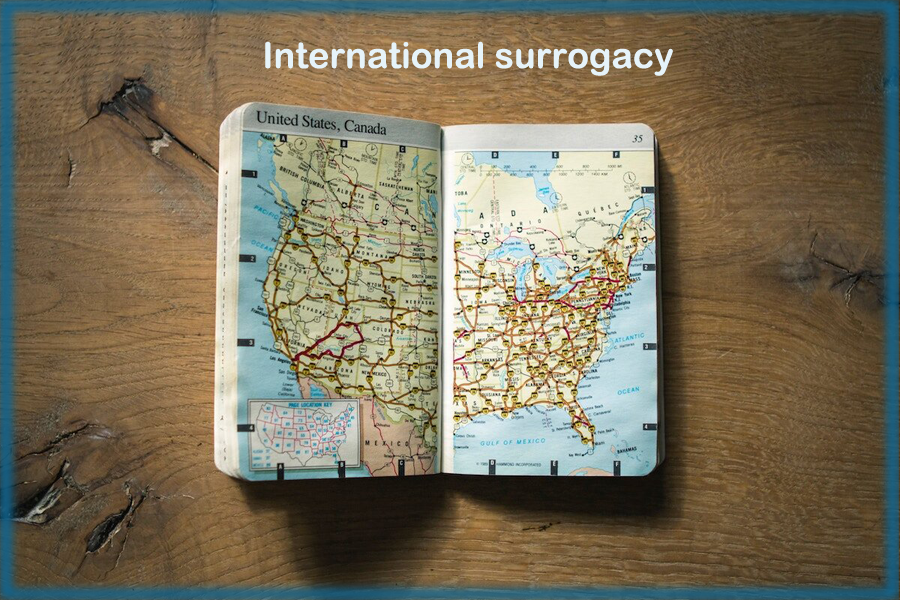How to Deal Effectively with Legal and Ethical Issues in International Surrogacy?
For those who dream of starting a family but find various challenges in their native countries, international surrogacy has proved to be a perfect alternative. It provides an opportunity to collaborate with surrogates overseas where laws on surrogacy might be more flexible or expenses are more reasonable. Although this international trend offers hope, it also raises a web of ethical and legal questions that need careful navigation.
Dealing with these difficulties calls for knowledge of the legal systems, appreciation of cultural variations, and a guarantee of ethical behaviour. Let us discuss how to handle these complications gradually.
How to Handle Ethical Issues in International Surrogacy
1. Knowledge of Legal Systems Worldwide
- The differences in surrogacy laws around the world are among the toughest features of international surrogacy. One nation may have what is allowed there illegal in another.
- Surrogacy laws vary state by state in the United States. California welcomes surrogacy, but other states have either strict rules or none at all
- Commercial surrogacy was once a thriving option but is now strictly regulated, allowing only altruistic surrogacy for nationals.
- Surrogacy is completely illegal in some European nations including Germany and France.
To negotiate these variations, one must:
Connect with a experienced legal consultant: Connect with an international surrogacy specialist attorney. They will clarify the legal obligations in your own nation as well as those of the surrogate’s nation.
Examine citizenship laws: Find out whether the child born via surrogacy will be acknowledged in your own country. Some nations grant citizenship only based on a genetic link between the child and the parents.
Recognize your parental rights: Laws differ about when intended parents are acknowledged as the legal parents. While in some areas this occurs at birth, in others a court procedure is needed.
2. Selecting a Surrogacy-Friendly Location
Not every nation fits for international surrogacy. While some countries operate in a legal gray area, others have well-established rules and systems protecting all parties. When choosing a nation for surrogacy, think on:
Legal clarity: it refers to nations with explicit surrogacy rules safeguarding the rights of the intended parents as well as the surrogate. Among the examples are Georgia and some states of the United States.
Medical Infrastructure: Make sure the nation boasts developed medical facilities and qualified experts to assist the surrogacy process.
Ethical Behavior: Stay clear of locations with past exploitation or inadequate regulations of surrogacy agreements.
3. Guiding Ethical Issues
The ethical side of international surrogacy sometimes sets off strong arguments. While supporters stress its ability to empower surrogates through financial independence, critics contend it can take advantage of women in economically poor nations. To meet these issues, one needs to ensure:
a. Fair Pay for Surrogates
Make sure the surrogate receives proper compensation for her time, work, and the physical demands of pregnancy. Compensation should take her whole well-being into account and surpass the minimal requirements.
b. Support for Surrogates
Surrogates have to have access to emotional support, counseling, and medical treatment all through the procedure. Health and safety of the surrogate should be first priorities for agencies and intended parents.
c. Openness and informed consent
The surrogate should be completely informed on the medical operations, possible risks, and legal consequences of surrogacy. Informed consent guarantees her agreement to all elements of the plan.
4. Developing a Strong Relationship with the Surrogate
Although cultural and language barriers abound in international surrogacy, developing a cordial and encouraging relationship with your surrogate is absolutely vital.
a. Share Clearly
If needed, make sure clear communication is achieved by using translators or interpreters. See the surrogate often to show your thanks and provide emotional support.
b. Valuation of Cultural Norms
Note the cultural values and customs of the surrogate. This regard reduces misunderstandings and promotes a good relationship.
c. Remain connected
Stay involved in the surrogate’s journey via video calls, letters, or random visits even if you live abroad. It indicates that you respect her part in this process of life transformation.
5. Collaborating with credible agencies
Your best friend in handling moral and legal concerns is a reputable surrogacy agency in all sorts. They oversee local law compliance, mediate between you and the surrogate, and handle the logistics. When selecting an agency:
Verify their reputation: To evaluate the agency’s credibility, search for reviews, quotes, and success stories.
Check their openness: Regarding expenses, procedures, and legal obligations, the agency should be clear-minded.
Verify moral conduct: Find out how they choose and assist surrogates to make sure their priorities are health above profit.
6. Dealing with Parental Rights and Citizenship
The child born via international surrogacy can have a complicated legal position. While some nations depend on the citizenship of the parents, others give children born inside their borders automatic citizenship. To prevent issues, opt for:
Safe legal documentation: Get the child’s birth certificate, passport, and any needed visas working with a lawyer.
Get ready for parental transfer: Sometimes you might have to follow legal parenthood’s establishment through a court procedure.
Connect with your embassy: The embassy of your native country can offer direction on travel plans and citizenship for the child.
7. Try avoiding Common Mistakes
International surrogacy is complicated, thus mistakes might have major effects. Here is a guide on avoiding typical mistakes:
Avoid cutting corners: Although cost is a big factor, selecting the least expensive solution could result in moral lapses or legal problems.
Patience is key: Surrogacy is a drawn-out process sometimes involving unanticipated delays. Two really important traits are patience and adaptability.
Remain updated: Laws and rules are changeable; thus, keep informed about legal advancements in the nation of the surrogate.
8. Taking Care of International Guidelines
The absence of universal surrogacy rules exposes risks and discrepancies for intended parents, surrogates, and children. Promoting worldwide standards helps the process to get much-needed justice and clarity. These Guidelines ought to cover:
- Standardize across borders parent rights and citizenship laws.
- Demand agencies to follow rigorous ethical and legal guidelines.
9. Learning from Real world Events
Experience from the real world can offer insightful analysis of negotiating international surrogacy. As an example, look for:
Positive Results: A US couple engaged with a Georgia surrogate where medical facilities are advanced and surrogacy laws are clear. They welcomed their baby free from legal complications thanks to a credible agency.
Difficulties faced: A couple seeking surrogacy in an developing nation ran across problems when the surrogate received inadequate medical treatment. Later on, they promoted more stringent rules to safeguard surrogates.
10. Future Ready
Advances in medical technology and shifting family dynamics will probably drive ongoing growth in international surrogacy. Ensuring a seamless and moral experience requires:
- Keep ahead of things. Early on, prepare for possible moral and legal challenges.
- Encourage international communication to produce shared values and norms.
- Let empathy guide you. Acknowledge the surrogate’s part as your journey’s partner and treat her with thankfulness and respect.
Final words
International surrogacy may come as a stressful, yet worthwhile journey that calls for careful negotiating of ethical and legal questions. Understanding the laws, respecting the surrogate’s rights, and collaborating with credible agencies will help you to make the experience good for all those engaged. Apart from bringing a child into the world, your objective as intended parents should be to guarantee that the procedure is ethical, fair, and respectful. Moreover, proper planning and a caring attitude will help you to overcome the difficulties of international surrogacy and create the family you have always desired.




